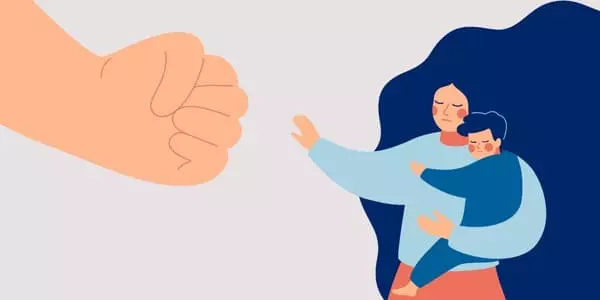The long-term effects of adversity in childhood have been well documented, particularly the effects on a child’s development and increased vulnerability to later mental health problems. While the negative consequences of exposure to intimate partner violence (IPV) are less well documented, adversities such as chronic neglect or abuse have been extensively described in the literature.
Infants from violent homes often have poor academic outcomes in school due to neurodevelopmental delays, as well as a higher risk for a variety of health issues such as gastrointestinal distress, difficulty eating and sleeping, as well as stress and illness.
Linda Bullock noticed bruises on a pregnant woman who was in premature labor in 1983. When Bullock inquired as to what had occurred, the woman stated that a refrigerator had fallen on her while she was cleaning the kitchen.
The findings highlight the variety of ways the multiple father figures may have assisted the mother in supporting her baby, whether it was through food, housing, childcare, or financial benefits. For women who had only one abusive partner, the infant’s father, the father may not have provided any physical or financial support or played an active role in the child’s life.
Linda Bullock
“Something didn’t seem quite right, but I didn’t know what to say. I simply moved on to the next assessment question, “Bullock is now an emerita professor at the University of Missouri Sinclair School of Nursing. “We ended her labor and sent her home, but I’ll bet my last dollar that I sent her back to an abusive relationship, which piqued my interest in assisting other nurses who work with battered women. What we didn’t realize at the time was the effect of violence on the baby.”
Bullock was instrumental in the implementation of the Domestic Violence Enhanced Perinatal Home Visits (DOVE) program in rural Missouri, which enabled safety planning and reduced domestic violence for hundreds of abused pregnant women. Bullock conducted a study to investigate the impact of multiple father figures on the cognitive development of newborn infants after learning from home health visits that many of the abused women had up to nine different romantic partners during and after pregnancy.
She was surprised to discover that infants of women who had only one male partner who abused them had worse cognitive outcomes than infants of women who had multiple male partners, only some of whom were abusive, after administering neurodevelopmental tests during home visits three, six, and twelve months after birth.

“The findings highlight the variety of ways the multiple father figures may have assisted the mother in supporting her baby, whether it was through food, housing, childcare, or financial benefits,” Bullock said. “For women who had only one abusive partner, the infant’s father, the father may not have provided any physical or financial support or played an active role in the child’s life. It can be difficult for busy, single mothers who are struggling to make ends meet to provide their infants with the toys and stimulation they require to reach critical developmental milestones.”
Bullock went on to say that infants from violent homes often have poor academic outcomes in school due to neurodevelopmental delays, as well as a higher risk for a variety of health issues such as gastrointestinal distress, difficulty eating and sleeping, as well as stress and illness.
“We want nurses to be trained in recognizing the warning signs of potential intimate partner violence when they visit homes to check on pregnant women and their developing babies,” Bullock said. “I still think back to 1983, when I sent that lady back home into a terrible situation, and I am deeply committed to ensuring that nurses today do not make the same mistake I did.”
The study, “Children exposed to intimate partner violence: The Impact of Multiple Father Figures,” was published in the Maternal Child Health Journal recently. The National Institutes of Nursing Research provided funding for the study. Collaborators from Johns Hopkins University and the University of Virginia were involved in the study.
Intimate partner violence (IPV) can have long-term consequences for a child’s socioemotional and neurological development. While research has focused on the effects of IPV on women or older children, the developmental consequences of early childhood exposure to domestic violence are less well documented. However, significant developmental effects would be expected because the infant’s brain and stress-related systems are especially vulnerable to environmental stimuli.
















